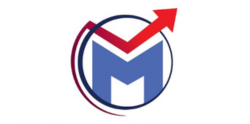The Role of Facebook Ads in Consumer Education
The Role of Facebook Ads in Consumer Education
In today’s digital age, consumer education plays a crucial role in building trust, fostering relationships, and driving informed purchasing decisions. Facebook Ads, with its extensive reach and targeting capabilities, can be a powerful tool for businesses to educate their target audience about products, services, and industry trends. This guide explores how Facebook Ads can effectively facilitate consumer education and enhance brand perception.
1. Importance of Consumer Education
Consumer education involves providing information and insights to potential customers to help them make informed decisions. Here are key reasons why consumer education is essential:
- Builds Trust: Educated consumers are more likely to trust a brand that provides valuable information and transparency.
- Drives Engagement: Educational content attracts engagement and encourages interaction with the brand.
- Reduces Uncertainty: By addressing consumer questions and concerns upfront, businesses can alleviate doubts and uncertainties.
- Positions as a Thought Leader: Sharing industry insights and expertise positions a brand as a leader in its field.
2. Leveraging Facebook Ads for Consumer Education
Facebook Ads offer several features and formats that businesses can leverage to educate consumers effectively:
Targeted Audience Reach
- Custom Audiences: Target existing customers or subscribers with educational content tailored to their interests and preferences.
- Lookalike Audiences: Reach new prospects who share similarities with your existing customer base, increasing the potential reach of your educational campaigns.
Educational Content Formats
- Video Ads: Create engaging video content to demonstrate product features, explain complex concepts, or provide tutorials.
- Carousel Ads: Use multiple images or cards to showcase different aspects of your product or service, each highlighting educational points.
- Slideshow Ads: Combine images, text, and animations to tell a story or provide step-by-step instructions.
- Instant Experience Ads (formerly Canvas Ads): Immersive, mobile-optimized ad format that allows businesses to create an interactive experience with educational content.
3. Strategies for Effective Consumer Education Campaigns
To maximize the impact of your Facebook Ads for consumer education, consider implementing the following strategies:
Know Your Audience
- Audience Segmentation: Segment your audience based on demographics, interests, behaviors, and buying stages to deliver targeted educational content.
- Buyer Personas: Develop detailed buyer personas to understand the specific needs, challenges, and motivations of your target audience segments.
Create Compelling Educational Content
- Address Pain Points: Identify common pain points or challenges faced by your audience and create content that addresses these issues.
- Provide Solutions: Offer practical solutions, tips, or best practices that showcase how your product or service can meet consumer needs.
- Use Clear Messaging: Communicate key messages clearly and concisely to ensure understanding and retention of educational content.
Incorporate Call-to-Actions (CTAs)
- Guide Consumer Actions: Include clear CTAs that encourage consumers to take the next step, such as signing up for a webinar, downloading an ebook, or visiting your website for more information.
- Encourage Engagement: Use interactive CTAs like polls, quizzes, or surveys to encourage consumer interaction and feedback.
4. Measuring Success and Optimization
Measuring the effectiveness of your consumer education campaigns on Facebook is crucial for continuous improvement:
- Key Metrics: Track metrics such as reach, engagement (likes, comments, shares), video views, click-through rates (CTRs), and conversion rates.
- A/B Testing: Experiment with different ad formats, messaging variations, and audience segments to identify what resonates best with your target audience.
- Optimization: Use insights from data analysis to optimize your campaigns in real-time, adjusting targeting, creative elements, and budget allocation as needed.
5. Case Study: Successful Consumer Education Campaign
Let’s explore a hypothetical case study to illustrate the effectiveness of Facebook Ads in consumer education:
Background
ABC Software, a B2B SaaS company, launched a campaign to educate small businesses about the benefits of their project management software.
Strategy
- Audience Targeting: Targeted small business owners and managers interested in productivity tools, using lookalike audiences based on their existing customer database.
- Ad Creative: Created a series of video ads demonstrating different features of their software and how it solves common project management challenges.
- Lead Generation Ads: Offered a free trial and downloadable guides on project management best practices to capture leads interested in learning more.
- Engagement and Follow-Up: Engaged with users who interacted with the ads, providing additional resources and personalized follow-up emails.
Results
ABC Software saw a 40% increase in trial sign-ups and a significant improvement in brand awareness among their target audience. The campaign not only educated potential customers but also generated qualified leads for their sales team.
6. Conclusion
Facebook Ads can play a pivotal role in educating consumers, building brand credibility, and driving meaningful engagement. By leveraging targeted audience reach, compelling educational content, and continuous optimization strategies, businesses can effectively educate their audience and influence purchasing decisions. Incorporate these strategies into your next Facebook ad campaign to enhance consumer education and achieve your marketing objectives.
Related Posts
Leave a Reply Cancel reply
Categories
MahbubOsmane.com is reader-supported, some products displayed may earn us a commission if you purchase through our links. MahbubOsmane.com is a participant in the Amazon Services LLC Associates Program. Learn more.

